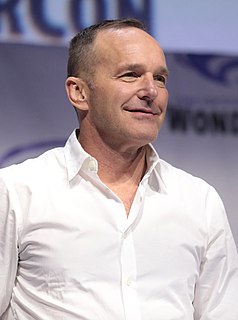A Quote by Elie Wiesel
If enough people are sensitive to the tragedy of Tibet, I think it will produce a change politically as well. But furthermore, it's important for the people in Tibet. Now communication is such [that] people know what is happening. Even Tibetan people would know that the Interfaith or the international group of religious people - that everybody who is religious is taking up their cause. It would help them a lot if we give them courage, and that in itself is enough.
Quote Topics
Cause
Change
Communication
Courage
Enough
Enough People
Even
Everybody
For The People
Furthermore
Give
Group
Happening
Help
Important
Interfaith
International
Itself
Know
Lot
Now
People
Politically
Produce
Religious
Religious People
Sensitive
Taking
Them
Think
Tibet
Tibetan
Tragedy
Up
Well
Will
Would
Related Quotes
The Tibetan religion has a past. And furthermore it has such an appeal. There again young people today are drawn to Buddhism and to Tibet. It's not only because of the Dalai Lama. It's because of what Tibet represents. There is a vast reservoir of knowledge, of mystical knowledge, which can be found in Tibet.The Chinese shouldn't be afraid of that really. They have other means of survival.
Tibet, why is it occupied? For political reasons maybe they have a reason. I don't know. But religiously, why? The fact that the religious community is being oppressed and persecuted is something that every single person in the world who has any religious faith and religious feeling for - for people who have faith should speak up.
One of the happier ironies of recent history is that even as Tibet is being wiped off the map in Tibet itself, here it is in California, in Switzerland, in Japan. All over the world, Tibetan Buddhism is now part of the neighborhood. In 1968, there were two Tibetan Buddhist centers in the West. By 2000, there were 40 in New York alone.
CBT is really a miracle. I've seen it help a lot of people, and one of the reasons I'm speaking out is that I don't feel like enough people know it. Through my work, I constantly come across other people who have various forms of anxiety or panic - it's much more common, I think, than people realize - and not all of them even really know about CBT.
It's impressive that a man [Dalai Lama], on the day after his Nobel Prize was announced, in October, 1989, said to me, "I really wonder if my efforts are enough?" Most of us, if we just won the Nobel Prize, would think this is vindication, or at last there's a chance for Tibet. He's the rare person who thinks, as a Buddha would, "I don't know if I've done enough, I don't know if I will do enough."
People realize that we're very good at sending people to war, but we're not good at taking care of them. And people are coming back from war now; years ago, they would have been killed, now they're wounded; and they're coming back alive and with post-traumatic stress. So, I think Americans are sensible enough to know we've got to figure out a way to take care of them.
I always thought if I could just put something in words perfectly enough, people would get the idea, and it would change things. That's a harmless conceit. With people, too, you constantly think, 'If I'm nice to people and treat them well, they'll appreciate it and behave better.' They won't, but it's still not a bad way to live.
I'm a big believer in you make your argument to everybody, and you do it in a way that is real and very candid. Even if people don't agree with you, they appreciate that you're telling them what you believe and they know that you care about them. That's I think a very important part of it that sometimes gets missed, is that people will be OK with you saying something they're not totally on-board with as long as they know that you believe it because you want to help them. That means you've got to care about everybody.
Superhero power... I probably would just want to fly. I definitely would not want to be able to see through walls. I think walls are there for a reason. People put them up for a reason. You don't want to be looking through them. That would only cause nothing but misery and angst to know what's happening behind people's walls.
When Democrats kind of cavalierly attack the religious right or go after Pat Robertson or Jerry Falwell, our candidates have sent the signal to a lot of religious people, 'Well, I guess they are not interested in me.' And I think this includes a lot of people who would fit very naturally within the Democratic Party.
Like, when we did Parliament and Funkadelic and Bootsy, it was actually one thing. But there were so many people that you could split them up into different groups. And then, when we went out on tour and they [the record companies] would see us all up there together - we had five, six guitars playing at one time, not including the bass! -, they said: "Wait a minute, that's just one whole group, selling different names!" But it wasn't - we had enough people in the group that each member would have a section to be another group. So now we're finally starting to get them to understand that.


































